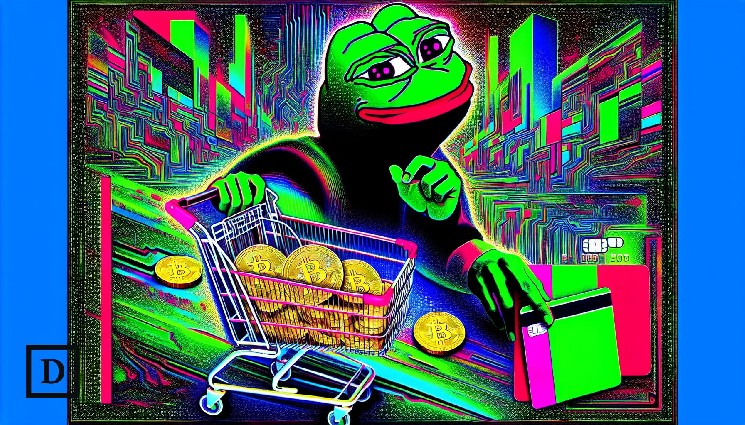Peter Schiff, well-known in the crypto industry as a Bitcoin critic and gold advocate, has announced that he is exploring new ways to digitize bullion via blockchain. Schiff revealed his plans for a tokenized gold platform in an interview with CounterParty TV posted yesterday, October 23rd.
The proposed platform includes a debit card that allows users to buy, hold, and spend tokenized gold while storing the precious metal in a vault. Schiff didn’t miss the opportunity to criticize Bitcoin, explaining his next product in an interview:
“Ideally, the one thing that makes sense to put on a blockchain is gold, because it works. And it delivers on everything that Bitcoin promises, but never can do. Tokenized gold can be used as a medium of exchange, as a unit of account, as a story of value. And I’m probably going to launch my own token at some point.”
Schiff described the upcoming platform as a way to make their gold holdings portable and available, allowing users to manage their tokenized gold in a mobile app, pay fractions with a debit card, and transfer ownership on-chain.
He also said that the platform “does not transmit physical gold” as the metal remains stored in a vault, but users can “transfer ownership of that gold to others” and redeem tokenized gold for physical gold. Schiff did not say whether there were any geographic or national restrictions on ownership or transfer.
Tokenized products

Commodities sector tokenized by asset. Source: RWAxyz
Schiff’s platform will tap into the fast-growing tokenized products sector, which has grown more than 36% in the past month, according to RWAxyz data. The sector is dominated by two tokenized gold products, Tether Gold (XAUT) and Paxos Gold (PAXG), which have a combined tokenized value of $2.9 billion and account for more than 80% of the $3.53 billion market.
Schiff’s bullish stance may be fueled by increased trading volume, especially in tokenized gold, after the spot price of gold has risen in recent months.
Last month, the combined trading volume of XAUT and PAXG surged to more than $16.5 billion, an all-time high and an increase of 2,760% from January of this year, according to data from DefiLlama.
“Trust Me Bro” Token
Although the details are still unclear, Schiff’s plan prompted swift and mixed reactions from the crypto community.
“Congratulations on inventing ETFs,” joked Eric Balciunas, senior ETF analyst at Bloomberg, in an interview, adding that investors already have options like VanEck’s OUNZ and Goldman Sachs’ AAAU, which store physical gold in a vault and allow shareholders to exchange their shares for physical gold.
Binance founder Chao Changpeng, who pleaded guilty in November 2023 to repeatedly violating U.S. anti-money laundering rules and was pardoned by President Dorando Trump yesterday, criticized Schiff’s proposed product, calling it “not ‘on-chain’ gold” and a “‘Trust Me Brother’ token” because it relies on a third-party custodian for redemption.
“Tokenizing gold is not ‘on-chain’ gold. You are tokenizing something that you believe will be provided by a third party at a later date, after a change of ownership, perhaps decades from now, even during a war, etc.,” Zhao wrote to X.
However, Zhao’s criticism came under pressure when Wintermute CEO Evgeny Gaevoy pointed out in a follow-up response that the same argument could apply to crypto assets wrapped through centralized entities such as WBTC/cbBTC and SOL on the BNB chain.
“(…) The same argument can be made for storing cryptocurrencies on centralized exchanges,” Gayvoy added in a direct jab at the CEX founder.
In response to Mr. Zhao’s criticism, Mr. Schiff publicly challenged the debate comparing Bitcoin and tokenized gold, aiming to debate which asset functions better as a medium of exchange, unit of account, and store of value. Binance’s founder has agreed to the debate, but details of when and where it will take place remain unconfirmed at the time of writing.


